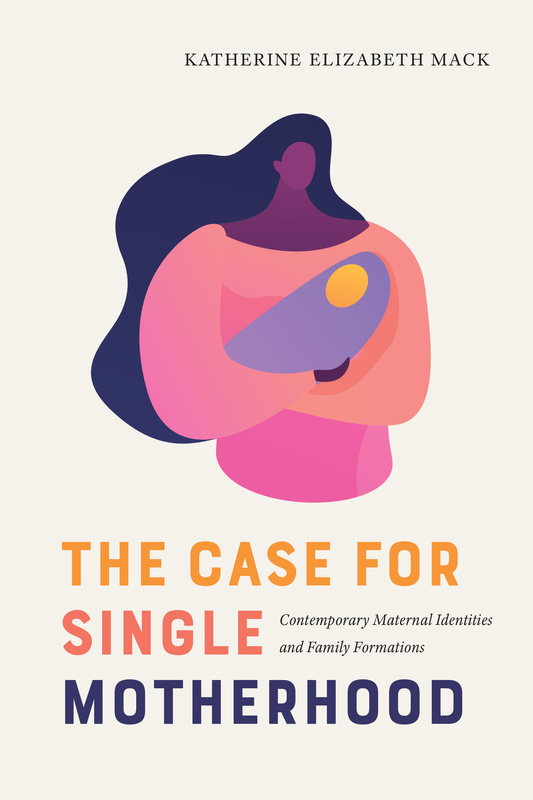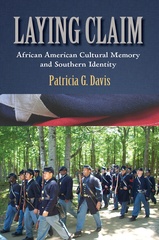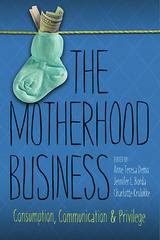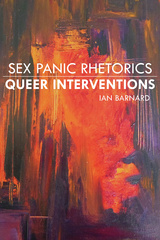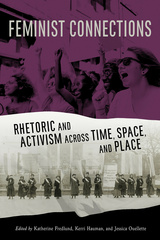Our shopping cart is currently down. To place an order, please contact our distributor, UTP Distribution, directly at utpbooks@utpress.utoronto.ca.
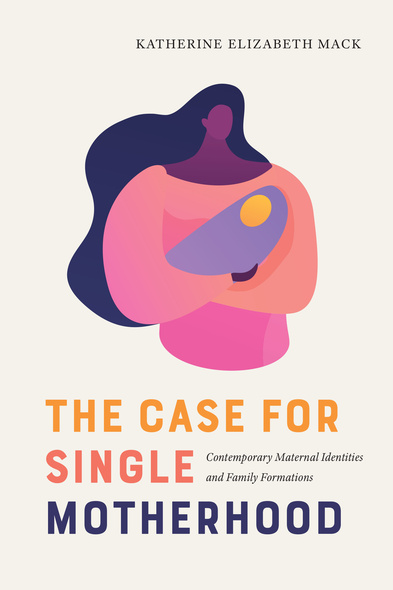
192 pages, 6 x 9
Paperback
Release Date:05 Dec 2023
ISBN:9780817361129
Hardcover
Release Date:05 Dec 2023
ISBN:9780817321543
The Case for Single Motherhood
Contemporary Maternal Identities and Family Formations
University of Alabama Press
Delves into the rhetorical work of elective single mothers (ESMs) in the late twentieth- and early twenty-first centuries as they sought—and continue to seek—to legitimize their maternal identities and family formations
Scholars of rhetoric have largely overlooked the inherent rhetoricity of family. In The Case for Single Motherhood, Katherine Mack posits family as a central concern of rhetorical studies by reflecting on how language is used by single mothers who seek to reenvision the personal, social, and political meanings of family.
Drawing on intersectional and rhetorical theories, Mack demonstrates how the category of elective single motherhood emerged in response to the historically differential treatment of “unwed mothers” along racial and class lines. Through her readings of a range of self-sponsored ESM texts—guidebooks, memoirs, and interactive digital media written by and primarily for other ESMs—and from her perspective as an elective single mother herself, Mack evaluates the rhetorical power, as well as the exclusions and hierarchies, that the ESM label effects. She analyzes how ESMs envision motherhood, visions that entail their musings about who can and should mother. Ultimately, Mack offers women who are considering nonnormative paths to motherhood a way to affirm their maternal identities and paths without disparaging others’.
Scholars in the fields of rhetoric and feminist rhetorical studies will find in this volume an illuminating perspective on the rhetorical power of self-sponsored texts in particular. Crafting a methodology to identify and evaluate the goals and effects of legitimacy work and selecting sources that bring academic attention to varied genres of self-sponsored writings, Mack paves the way for future rhetorical studies of motherhood and family.
Scholars of rhetoric have largely overlooked the inherent rhetoricity of family. In The Case for Single Motherhood, Katherine Mack posits family as a central concern of rhetorical studies by reflecting on how language is used by single mothers who seek to reenvision the personal, social, and political meanings of family.
Drawing on intersectional and rhetorical theories, Mack demonstrates how the category of elective single motherhood emerged in response to the historically differential treatment of “unwed mothers” along racial and class lines. Through her readings of a range of self-sponsored ESM texts—guidebooks, memoirs, and interactive digital media written by and primarily for other ESMs—and from her perspective as an elective single mother herself, Mack evaluates the rhetorical power, as well as the exclusions and hierarchies, that the ESM label effects. She analyzes how ESMs envision motherhood, visions that entail their musings about who can and should mother. Ultimately, Mack offers women who are considering nonnormative paths to motherhood a way to affirm their maternal identities and paths without disparaging others’.
Scholars in the fields of rhetoric and feminist rhetorical studies will find in this volume an illuminating perspective on the rhetorical power of self-sponsored texts in particular. Crafting a methodology to identify and evaluate the goals and effects of legitimacy work and selecting sources that bring academic attention to varied genres of self-sponsored writings, Mack paves the way for future rhetorical studies of motherhood and family.
Within rhetorical studies, the book is well grounded in leading scholars in the field—Buchanan, Hundley and Hayden, Fixmer-Oraiz, Cloud—while also interweaving key motherhood studies scholars and/or related scholars across fields—O’Reilly, Hays, Douglas and Michaels, Solinger, Roberts, Collins, and Halberstam. In fact, one strength of the volume is the author’s interweaving of all these scholars in the service of understanding ESM’s rhetorical power and limits within motherhood.’
—Lynn O'Brien Hallstein, author of Bikini-Ready Moms: Celebrity Profiles, Motherhood, and the Body
'The Case for Single Motherhood is compelling in its engagement with texts by Single Mothers by Choice (SMCs), and the arguments and analyses productively engage feminist rhetorical scholarship, especially scholarship that takes up rhetorics of motherhood, fertility, and reproduction.'
—Jessica Enoch, author of Refiguring Rhetorical Education: Women Teaching African American, Native American, and Chicano/a Students and Domestic Occupations: Spatial Rhetorics and Women’s Work.
'The Case for Single Motherhood confronts contemporary discourse about what makes a ‘traditional’ family and advances a comprehensive challenge to the stigma embedded in the politics of ‘family values.’ Katherine Mack complicates these dominant frameworks by elevating the courageous voices and reflective contributions of elective single mothers, thus expanding definitions of mothering. This captivating and reflective analysis illuminates a transformative and legitimizing path forward for 21st century maternal rhetorics that engage difference while embracing inclusivity.'
—Jennifer Borda is professor of communication at the University of New Hampshire. She is author of The Motherhood Business: Consumption, Communication, and Privilege and Women Labor Activists in the Movies: Nine Depictions of Workplace Organizers, 1954-2005.
Katherine Mack is professor of English at the University of Colorado in Colorado Springs. She is author of From Apartheid to Democracy: Deliberating Truth and Reconciliation in South Africa, as well as of scholarship in Rhetoric Society Quarterly, Rhetoric Review, and Reception: Texts, Readers, Audience, History.

